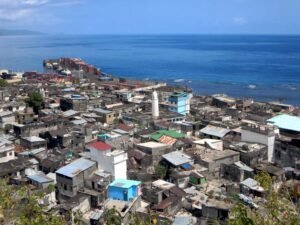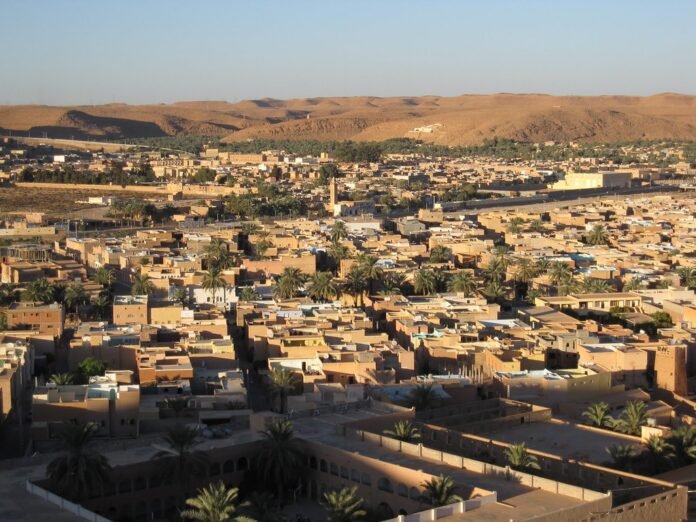The healthcare financing system in the Union of Comoros is currently undergoing transition, with a growing emphasis on public health insurance initiatives and a small but notable presence of private insurance options. Though both systems aim to improve access to care, they differ significantly in structure, coverage, and target population.
Public Health Insurance in Comoros is still in the early stages of development. The most prominent initiatives include community-based health mutuals (mutuelles de santé), social security for formal workers, and the recently launched pilot for General Health Insurance (Assurance Maladie Généralisée, or AMG). Health mutuals, coordinated by FENAMUSAC, cover a small segment of the population (around 3.3% as of 2012), mostly women, and offer voluntary, low-cost access to basic care. Social security, on the other hand, covers about 30.8% of insured women but is limited to employees in the formal sector.
AMG represents the government’s most ambitious step toward achieving universal health coverage by 2030. The program, supported by the French Development Agency, launched its pilot phase in 2024 targeting 52,000 households. It is intended to include contributions based on income and aims to extend financial protection to the poor, vulnerable, and economically stable populations alike. However, as of 2025, it remains in its infancy.
In contrast, Private Health Insurance in Comoros is primarily dominated by international providers catering to expatriates, travelers, and the affluent. Companies such as Cigna Global, GeoBlue, Bupa Global, and William Russell offer comprehensive packages with high coverage limits—ranging from $1.25 million to $2 million—that include inpatient and outpatient care, chronic disease management, emergency evacuation, and even adventure sports coverage in some cases. Local private health insurance offerings are minimal, with limited market penetration and weak regulatory oversight.
Key differences include the target demographics and scope of coverage. Public schemes aim to include the entire population, especially the underserved and low-income groups, whereas private insurance mainly serves foreign nationals and high-net-worth individuals. The financing models also differ: public insurance (especially AMG) depends on income-based contributions and external support, while private insurance is paid for directly by individuals or employers, often at significantly higher premiums.
However, there are also similarities. Both systems aim to reduce out-of-pocket spending, which remains the dominant form of healthcare payment in Comoros. Additionally, both public and private models emphasize preventive and primary care, albeit at different levels of depth and cost.
Top Public Health Insurance Options in the Union of Comoros
The Union of Comoros, a small island nation in the Indian Ocean, is in the early stages of developing its national health insurance infrastructure. As of 2025, Comoros has a single state-backed public health insurance program that provides basic coverage to eligible citizens. Due to limited resources, the country does not yet have a fully diversified public health insurance system with multiple options like those found in more developed nations. Below is an in-depth look at the only public health insurance program currently operating in the Union of Comoros, along with its features, costs, and overall impact.
1. National Health Solidarity Fund (Fonds National de Solidarité pour la Santé – FNSS)
Cost:
The FNSS is largely subsidized by the Comorian government and supported by international donors such as the World Health Organization (WHO), the United Nations Development Programme (UNDP), and various non-governmental organizations. Contributions are minimal for low-income citizens, often less than $1 per month, and enrollment for the poorest citizens is typically free. Government employees and formal sector workers contribute a small percentage of their monthly salary—around 2–3%.
Available Services/Coverage Features:
FNSS provides basic primary care services, including outpatient consultations, maternal and child health services, vaccinations, and limited diagnostic tests. Emergency services are also covered to a degree, though advanced or specialized care often requires out-of-pocket expenses or referral to facilities abroad. Coverage for chronic disease management, surgical procedures, and specialized diagnostics is limited due to infrastructural and financial constraints. Medications included in the national essential drug list are partially subsidized.
Open for All or Limited:
FNSS is theoretically open to all citizens, with an emphasis on vulnerable populations such as women, children, and the elderly. In practice, rural populations and informal sector workers often face difficulties in accessing these benefits due to administrative barriers and healthcare facility limitations.
Core Financial Features:
- Funding Model: A mix of state funding, donor support, and small payroll contributions from formal workers.
- Subsidies: Full subsidies for indigent groups.
- Out-of-Pocket Costs: Significantly reduced for consultations and basic medications, though patients may still pay for higher-tier services or treatments not covered under the scheme.
- Portability: Benefits are mostly restricted to public health centers within the country.
- Claims System: Paper-based, often slow, with minimal automation.
Consumer Satisfaction Score:
While no formal consumer satisfaction index exists, informal surveys conducted by health-related NGOs indicate moderate satisfaction levels. Access to basic services is appreciated, especially among urban residents, but frustrations are common regarding the quality of care, medication shortages, and the availability of specialized treatment. On a general scale, the FNSS can be estimated to receive a satisfaction score of 6 out of 10, with urban populations reporting slightly higher satisfaction than rural areas.
Private Health Insurance Options in the Union of Comoros
The private health insurance market in the Union of Comoros is still in its infancy, reflecting the broader limitations of the country’s healthcare infrastructure. Due to its relatively low-income status and reliance on international aid for healthcare services, private insurance coverage is limited and often tailored toward expatriates, wealthier citizens, and individuals working with foreign organizations. As of 2025, there are only two known private health insurance providers operating in the country. These options are basic in scope but do provide some additional flexibility and coverage beyond the public sector offerings.
1. Mutsamudu Health Mutual (Mutuelle Santé de Mutsamudu)
Cost:
Premiums start at approximately $10–15 per month for individuals, with family plans reaching up to $40 depending on age and risk profile. This cost is relatively high by local standards and generally targets upper-income households and business owners.
Available Services/Coverage Features:
- Access to private clinics and select pharmacies in Mutsamudu and Moroni.
- Partial coverage of diagnostic imaging, lab tests, and consultations with private physicians.
- Minor surgical procedures and short hospital stays are partially reimbursed.
- Limited maternal and pediatric care.
Open for All or Limited:
This plan is limited to residents in or near urban areas where private clinics are available. The insurer also requires medical screening for enrollment, making it less accessible to older or high-risk individuals.
Core Financial Features:
- Co-payments: Clients cover around 30–40% of service costs.
- Annual Cap: Benefits capped at approximately $1,000–$1,500 per year.
- No international coverage.
Consumer Satisfaction Score:
Estimated at 6.5 out of 10—urban enrollees appreciate faster service and shorter wait times, but dissatisfaction arises from coverage limits and lack of emergency transport services.
2. Comoros Medical Cooperative Plan (CMCP)
Cost:
Monthly premiums average $20–$25 for individuals and up to $60 for family packages. The plan is designed in cooperation with foreign NGOs and caters mainly to staff in diplomatic missions, NGOs, and the private education sector.
Available Services/Coverage Features:
- Priority access to private outpatient clinics.
- Enhanced lab diagnostics, general surgery, and selected specialist referrals.
- Vaccinations, maternity services, and chronic disease management.
- Emergency evacuation within the islands (but not abroad).
Open for All or Limited:
Strictly limited to formal-sector workers, NGO staff, and pre-screened applicants. Not available to the general public.
Core Financial Features:
- Deductibles: Around $50 annually.
- Reimbursement Rate: 70% of eligible medical expenses.
- Add-ons: Optional dental and vision packages.
Consumer Satisfaction Score:
Rated 7.5 out of 10 by users, particularly due to reliable administrative support and the inclusion of chronic illness care. Criticized for limited hospital partnerships and lack of international portability.
READ MORE: Private and public health insurance of San Marino (Make informed choices)


